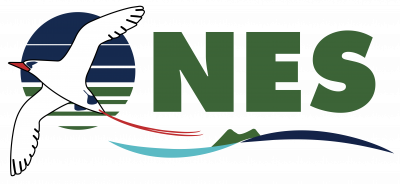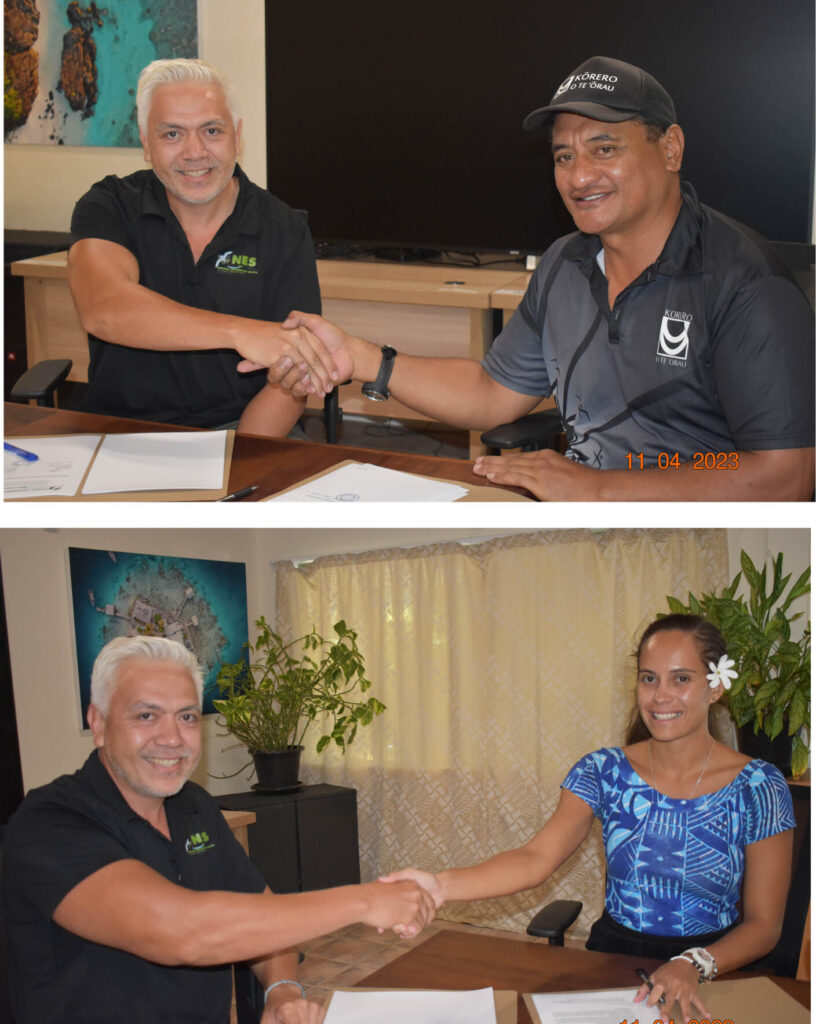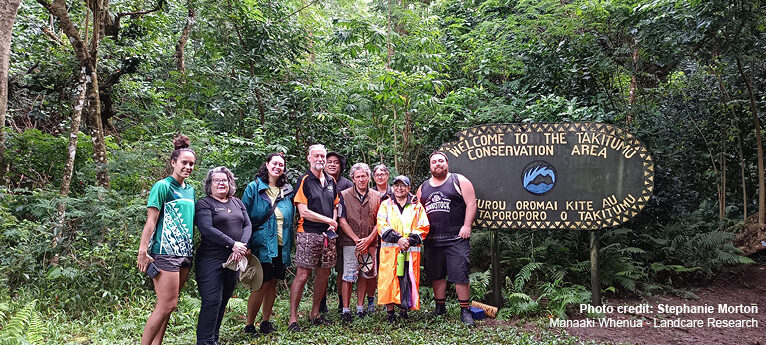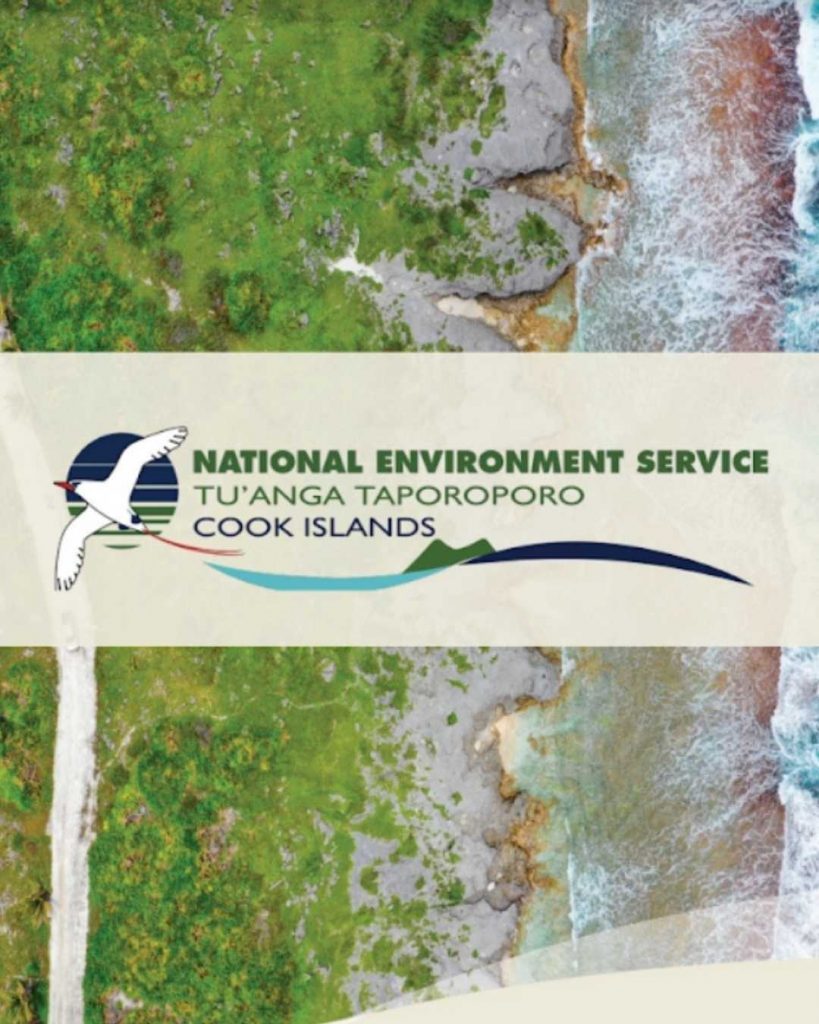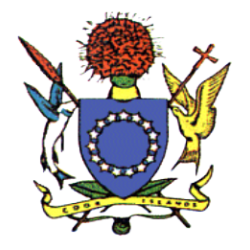On Tuesday 11th April, the National Environment Service (NES) signed its Memorandum of Understanding (MOU) with a non-government organisation, Kōrero O Te ‘Ōrau (KO). The MOU established a formal partnership to achieve common goals that protect our environment. On the same day, a second MOU, between NES and Te Ipukarea Society (TIS), was also signed.
A need for formal partnership between NES and our local NGOs was identified at an NGO-platform meeting hosted by the NES in 2022, where NGO representatives felt there was no clear understanding of the support and resources available to them from the NES and wider government. In response, the MOU aims to “better align shared activities and optimize resources to deliver on common goals.” This is also a great step towards achieving goal 9 of the National Sustainable Development Agenda 2020+ (NSDA) by increasing support to our local partners, including non-government organisations.
Both MOUs underpin a collaborative approach to enhance conservation efforts between government and our local NGOs, who host a range of experience and expertise. Each MOU has identified specific shared priority areas for joint activities between the parties, leveraging the unique focal areas of each partner.
NES and KO have agreed to prioritise biodiversity and ecosystem conservation, capacity building, indigenous and youth support, research and data collection and communications. KO are valuable partners providing expertise in science, traditional knowledge and sustainable development, and have exceptional youth engagement.
KO Chairperson, Dr Teina Rongo, stated “[the MOU] opens up the door for us to work with the agency that we should be working with when it comes to the environment, as this is the space we focus on as an environmental NGO. It’s good we can now work together and we look forward to doing so.” Likewise, NES looks forward to building our working relationship with KO.
A pre-existing MOU between TIS NES was signed in 2012 with the purpose of “Saving Suwarrow’s Seabirds: Restoring a key biodiversity area” and aimed to implement a rat eradication project in Suwarrow over the space of two months. This latest MOU identifies shared priorities of the NES and TIS for joint activities; biodiversity conservation, waste management, ecologically sustainable development, research and data collection, and education and communications. A key joint activity will be strengthening the management of Suwarrow National Park as an important protected area, as TIS have long supported the management and conservation of the Suwarrow National Park.
“The recent MOU signing between NES and TIS is a positive step for both parties. There are missed opportunities working in silos so we appreciate the partnership moving forward, and hope this is the start of more partnerships with government in future in support of our natural environment” said TIS Director, Alanna Smith.
NES looks forward to implementing these MOUs and strengthening the partnerships with our local experts.
